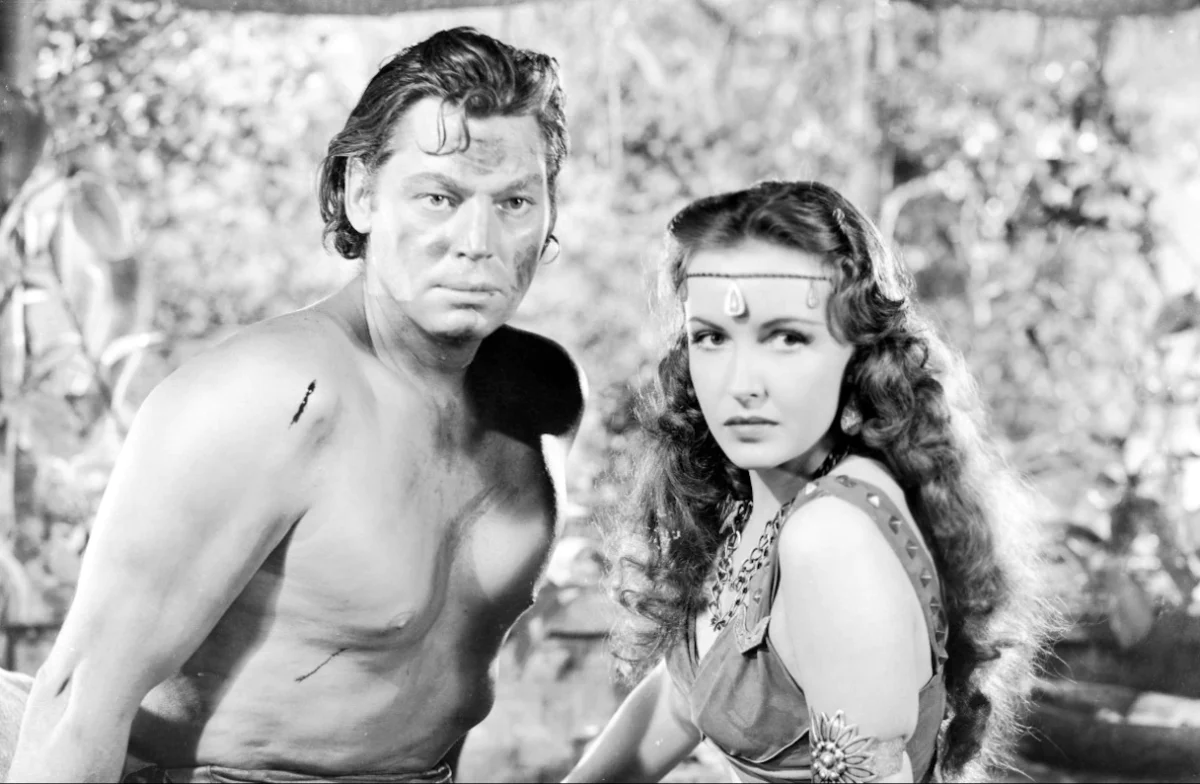Toward the end of Tarzan Triumphs, the seventh of twelve Tarzan movies starring Johnny Weissmuller as the fictitious ape man, he exclaims, “Nazis bring trouble.”
What an understatement!
Tarzan should have reached this conclusion much sooner in this wartime film, but what do you expect from a primitive man cut off from the world and the news?
After hearing that World War II is raging, Tarzan asks plaintively, “Why do men have to kill each other?”
A good and timeless question.
Boy (Johnny Sheffield), Tarzan’s adolescent son, has a better appreciation of reality, plus an instinctual understanding of Adolf Hitler’s murderous regime. In a bracing comment that must have resonated with American filmgoers in the mid-1940s, Boy voices confidence that Tarzan can kill Nazis, the scourge of humanity.
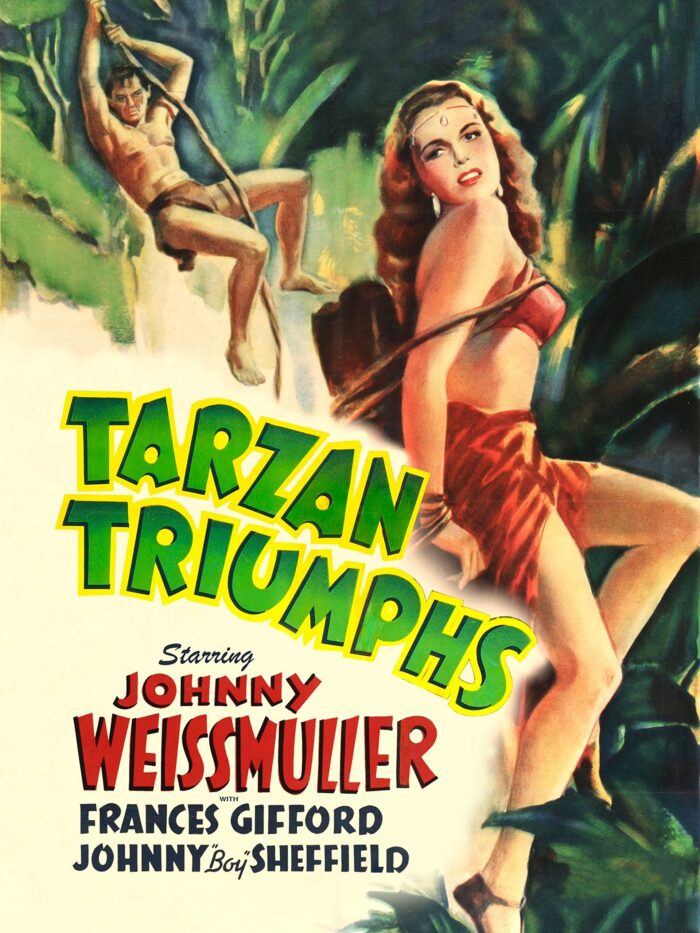
In William Thiele’s 1943 RKO Radio Pictures film, which was broadcast by the Turner Classic Movies channel a couple of days ago, Tarzan is captured by a band of rapacious German soldiers intent on enslaving the inhabitants of an idyllic settlement deep in the jungle. The imperialist Nazi mission is to extract oil and minerals from their bountiful land so that Germany can continue to wage its war of aggression, aggrandizement and genocide in Europe.
Tarzan Triumphs, of course, was released in a terribly fraught year when the Holocaust was in full swing and the Warsaw ghetto uprising took place.
Tarzan, an escapist hero created by the American author Edgar Rice Burroughs, insinuated his way into silent films in 1918. Fourteen years later, Tarzan the Ape Man, the first talkie, appeared on screens. Weissmuller, a Swabian German born in Romania and raised in the United States, was its star attraction for more than a decade.
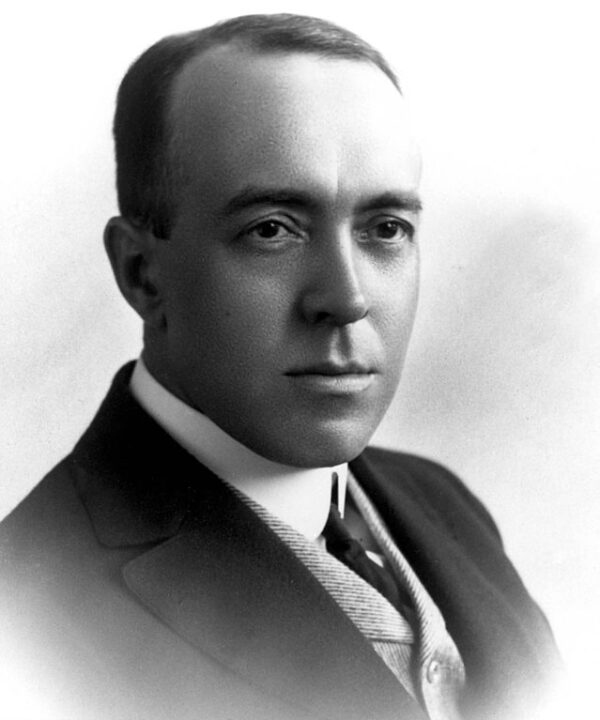
In modern parlance, Weissmuller was a hunk. Tall, lithe and athletic, he was an Olympic Games swimmer with five gold medals and a panoply of world records to his credit.
Sliding into his character effortlessly, Weissmuller portrayed Tarzan as a strong, resourceful, kind-hearted denizen of the wild who wears loincloth and speaks pidgin English. His son, Boy, rides a baby elephant and consorts with Cheetah, a mischievous chimpanzee who screeches, makes funny faces, performs somersaults and serves as his sidekick.
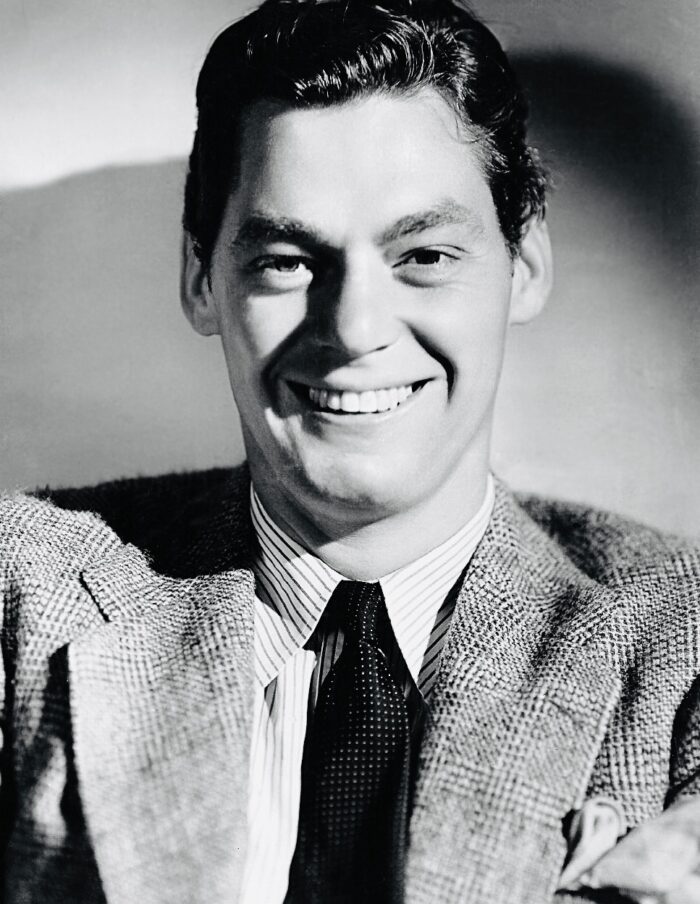
They live in a remote, dangerous survival-of-the-fittest environment teeming with wild beasts and carnivorous fish. This lush and unforgiving landscape of dense forests, gushing waterfalls and placid steams was expertly replicated in Hollywood sound studios. Only one Tarzan film was actually shot on location in a real jungle.
As Tarzan Triumphs gets under way, Boy tumbles from a high cliff, his fall broken by a sturdy tree branch. He is rescued by Zandra (Frances Gifford), an alluring inhabitant of Pallandria, a city state enclosed by hardwood trees, shrubs and bushes. Tarzan, a knife in hand, soon shows up. He gets around by swinging from vine to vine.
En route back to his abode, Tarzan spies an “iron bird” in the sky, a German aircraft. It disgorges a group of commandos in parachutes, after which it crashes. Spying a lone commando who has landed in crocodile-infested waters, Tarzan observes, “Man come down.”
As Tarzan approaches him, he wonders, “What stranger want here?” Clearly, Tarzan does not realize what Schmidt, the German intruder, is up to. Schmidt (Rex Williams) identifies himself as Sheldon, a British national, and Tarzan dutifully tends to his wounds.
In the meantime, a German patrol led by Colonel von Reichart (Stanley Ridges) is welcomed to Pallandria, a haven of peace. The naive natives have no idea that the Germans intend to impose a “new order” here by enslaving them and exploiting their natural resources.
Zandra, pretty, pert and smart, soon catches on to their machinations. She is the love interest in this film. Jane, Tarzan’s previous lover who Maureen O’Sullivan portrayed in the initial Tarzan movies, is absent here. By this point, O’Sullivan had grown weary of playing Tarzan’s consort.
As these scenes unfold, Schmidt informs Berlin that the Germans are building an airstrip in the wilderness.
In the face of the Nazi threat, Zandra asks Tarzan for assistance, and he agrees to help. The dire situation prompts him to say, “Jungle people only fight to live.” And in a barbed reference to the Nazis, he adds, “Other people live to fight.”
With Tarzan and Zandra on the run, their German pursuers ford a stream, only to be devoured by man-eating fish. In another scene, Cheetah steals an irreplaceable coil from a German short wave radio, leading Schmidt to go after the slippery chimp.
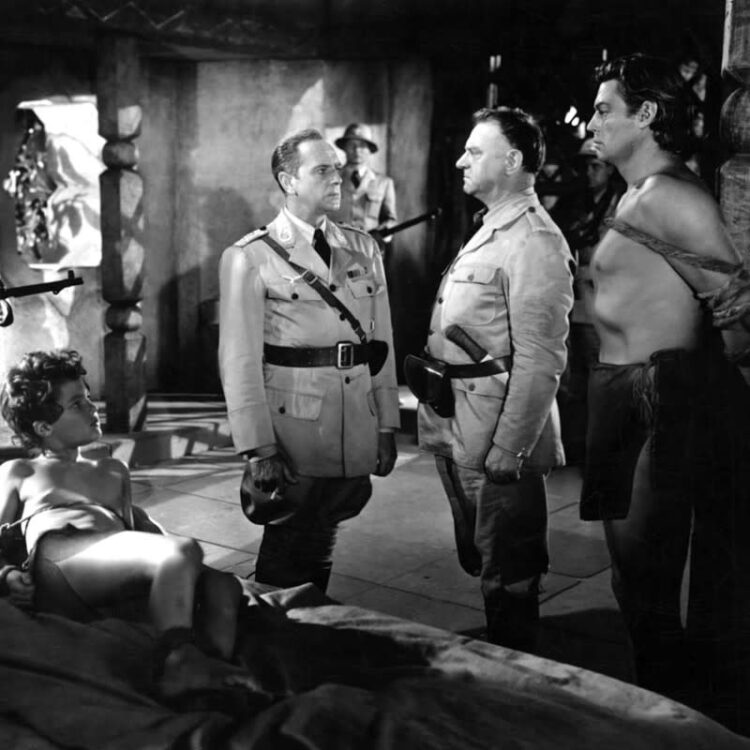
Tarzan, having declared war on the Nazis, heads to Pallandria to confront the Nazis. Upon seeing Tarzan, Von Reichart arrogantly says, “So, the jungle man lives.” In short order, the Nazis capture Tarzan and Zandra and Cheetah rescues them. A gun battle ensues and lives are lost. Tarzan chases Von Reichart into the jungle, repeatedly shouting “Nazi.”
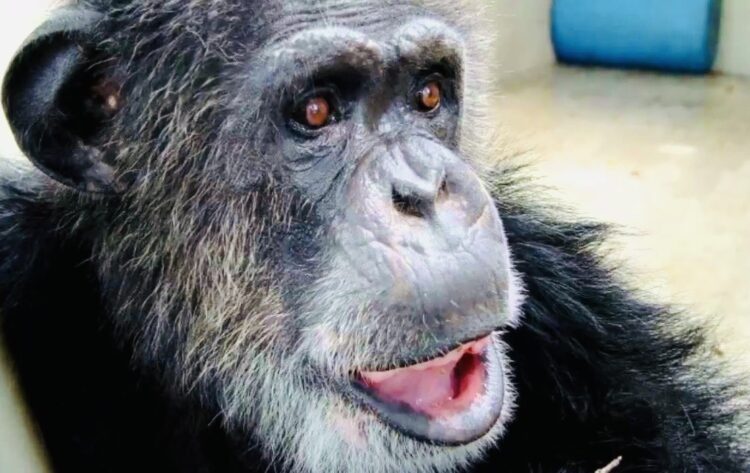
Cheetah, in a finishing touch, turns on the radio transmitter and lets loose with a litany of animal noises. The Nazi operators in Berlin, thinking that Hitler is on the line, rise in unison and ridiculously pay homage to him with Nazi stiff-arm salutes.
To the best of my knowledge, Tarzan Triumphs was the first and only movie in the Tarzan series to weave a plot around the Nazi menace. By any measure, it is a middling, run-of-the-mill film from a long-gone Tinseltown era. But as formulaic and predictable films go, it is fun to watch and pleasurable to unwind with such a campy celluloid relic of the past.
